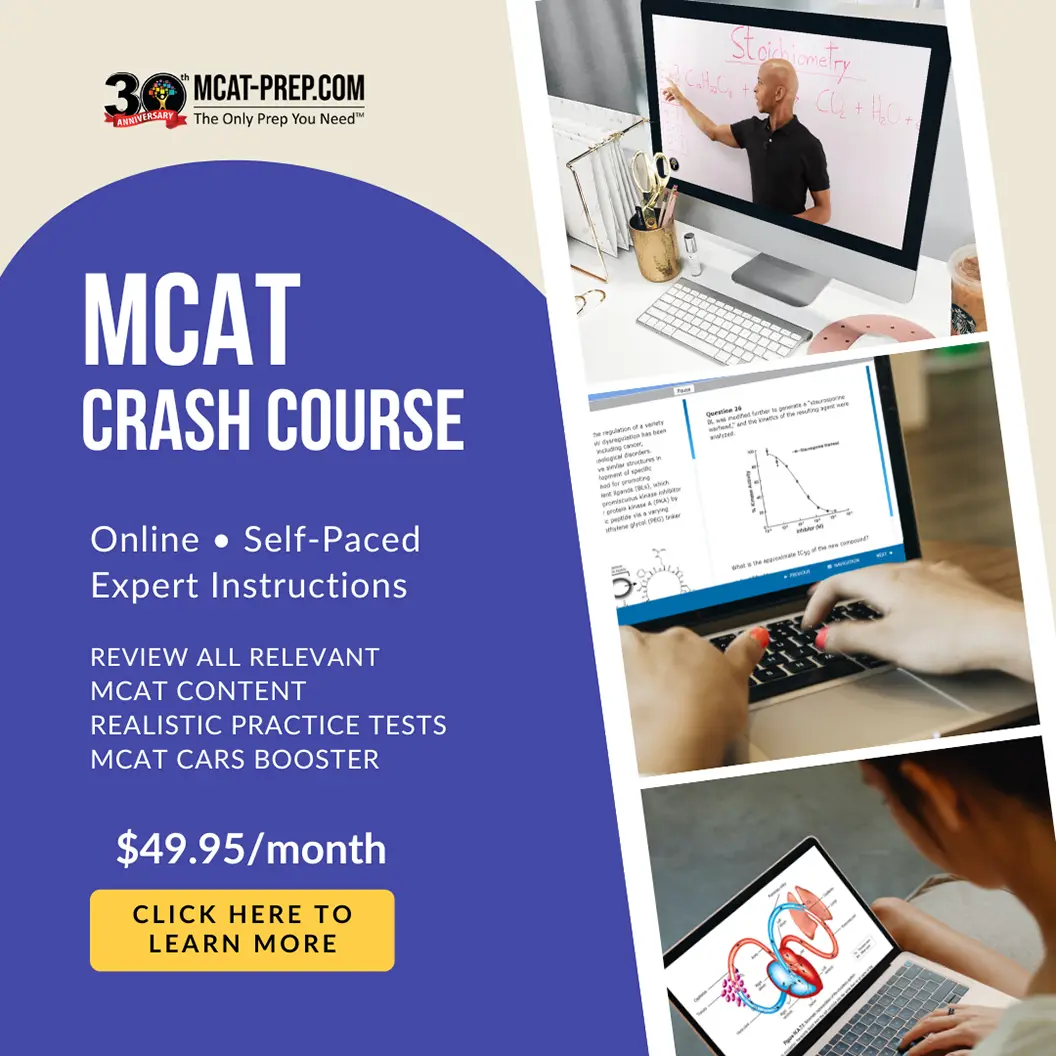How to Determine When to Take the MCAT
How to Determine When to Take the MCAT
- February 1, 2025
When should I take the MCAT? This is the perfect example of one question with more than one correct answer! The reason for this is because each individual’s situation is different. In order to choose when to take the MCAT, you must first ask yourself a series of questions such as:
- When will I apply for admission to medical school?
- How long do I need to study for the MCAT?
- What materials will I use to study for the MCAT?
- Where will I register to take the MCAT?
- Will I take the MCAT just once or will I want to retake it?
Depending on where you are in your education (i.e. high school student, college student, etc.) or career (i.e. nontraditional student, career changer, etc.), answering these questions may feel a little overwhelming or even premature. Nevertheless, they each have a major impact on the timing of your MCAT test date. So, let’s walk through these questions together and move you closer to determining when to take the MCAT.
When will I apply for admission to medical school?
If you have not discovered this already, then you should know that medical school demands as much of a time investment as it does a financial investment. And that investment of time begins with the application process. Whether you are applying to allopathic or osteopathic medical schools, you must apply for admission one year prior to the year in which you intend to start medical school. Your MCAT score is not only a required part of your application, but also an important component to medical school admissions personnel in considering you for acceptance. Consequently, the later you receive and submit your MCAT score the further you will delay the review of your application. Our Tip: Take the MCAT exam before your application year begins.
How long do I need to study for the MCAT?
Again, everyone’s study needs are different; so, take some time to evaluate your strengths and weaknesses within the content you will be tested on. Are you strong in the sciences or not so much? How prepared do you feel for the CARS section or taking a timed exam in general? You should think about these ideas and start drafting an effective MCAT study schedule. In your schedule, tackle your more difficult subjects first then move onto the subjects in which you feel more comfortable. Our Tip: Allow a minimum of 3 to 6 months to study for the MCAT prior to your test date and check out our MCAT study schedule.
What materials will I use to study for the MCAT?
This question may not seem applicable to your MCAT test date, but it is! For example, if you are studying on your own with an online prep course then you have a reasonable amount of autonomy over when or how often you study. On the other hand, if you take an in-person prep course then you must attend classes and review material according to a predetermined length of time (i.e. 6 months, 9 months, etc.). Therefore, you must consider (a) how much you trust your study materials and (b) how prepared for the MCAT you believe you will be at the end of your program. Our Tip: Consult your peers and reliable online reviews to select the MCAT prep courses or programs that will meet your needs and conclude shortly before your test date.
Where will I register to take the MCAT?
Location is everything - and that cannot be more true when choosing the testing site for your MCAT exam. Although test dates are available January through September (excluding February), your preferred testing site may be full for your desired test date. So, consider how far you are willing (and can afford) to travel. Will you need to stay in a hotel the night before to reach your testing site on time? Similarly, timing is everything. Will you encounter traffic or a railroad crossing on your way to the testing site? Our Tip: Select a MCAT test date at a testing site that offers you the smoothest, stress-free commute, and register as early as possible..
Will I take the MCAT just once or will I want to retake it?
Taking the MCAT once and getting a competitive score unfortunately does not happen for all pre-med students. If this happens to you, there are a few steps you can take to decide if retaking the MCAT is a good option for you. However, it is often best to plan ahead; so, choose an earlier test date that will allow you enough time to retake the exam (if necessary) before submitting your medical school applications. Our Tip: Take your MCAT exam either in the year prior to your application year or early in the year you wish to apply.
As you have most likely concluded, determining when to take the MCAT is strictly up to you. Yet, keeping these questions and topics in mind will guide you to delivering your best performance on test day. Best of luck to you!




